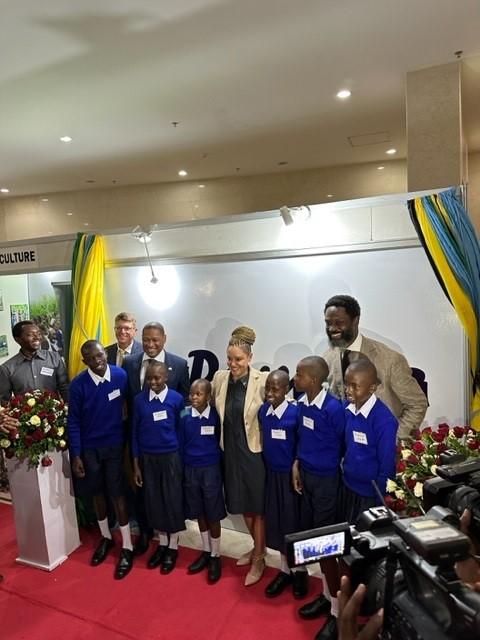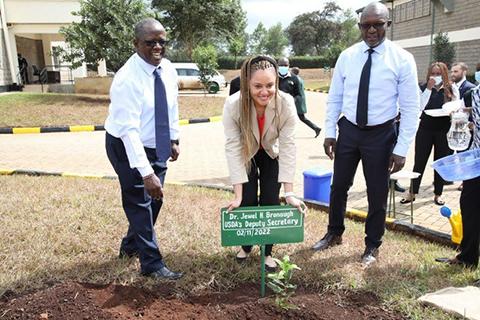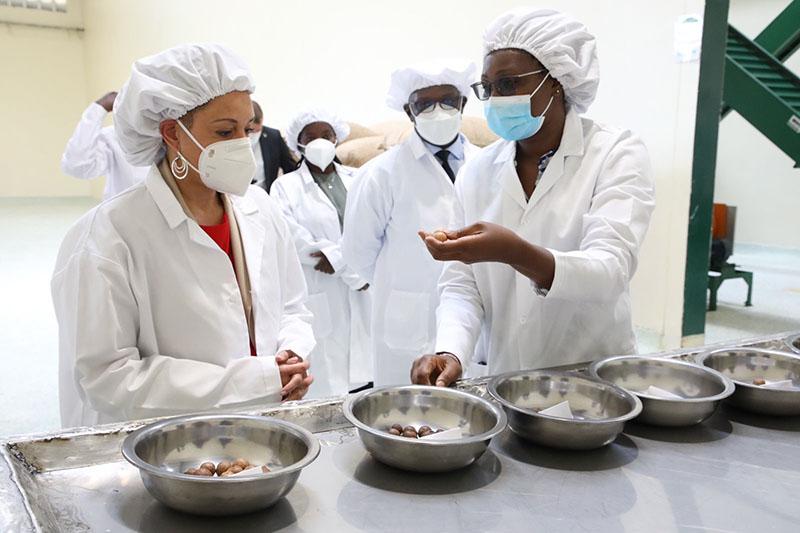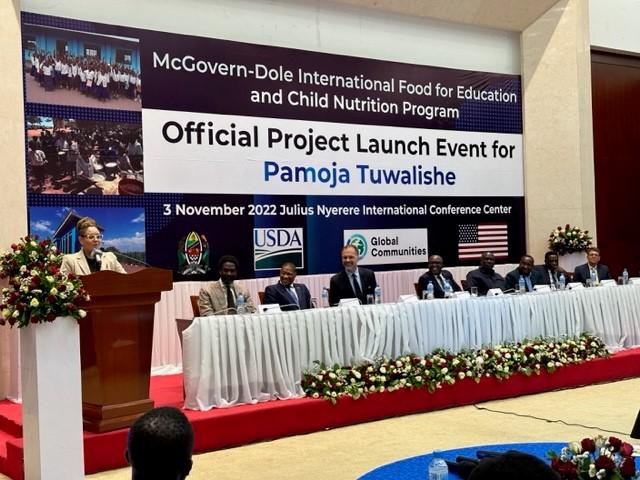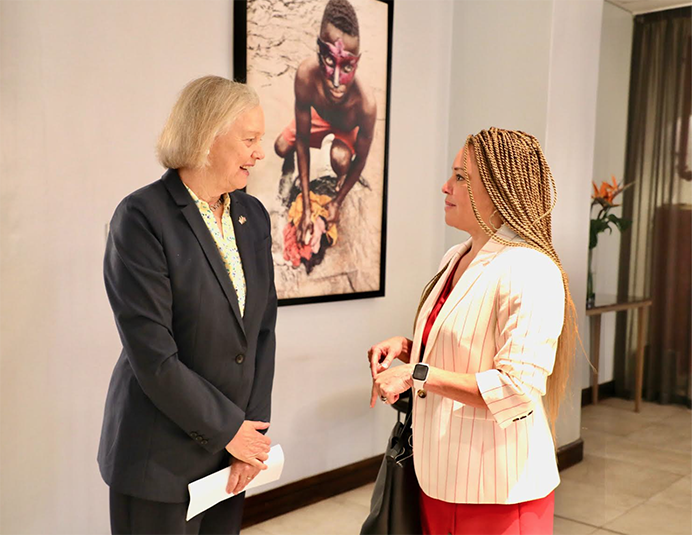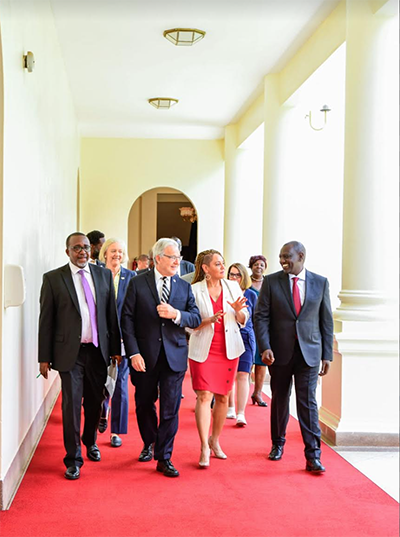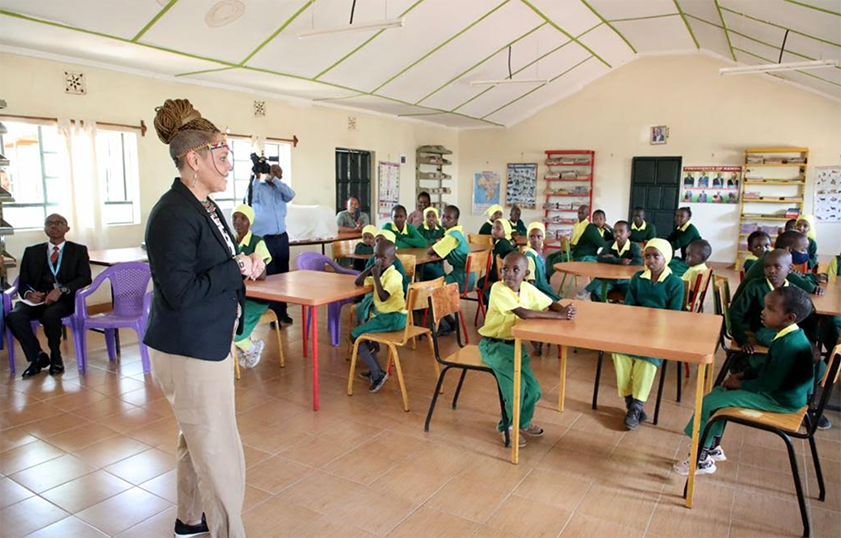USDA Trade Mission Strengthens U.S.-Africa Ties
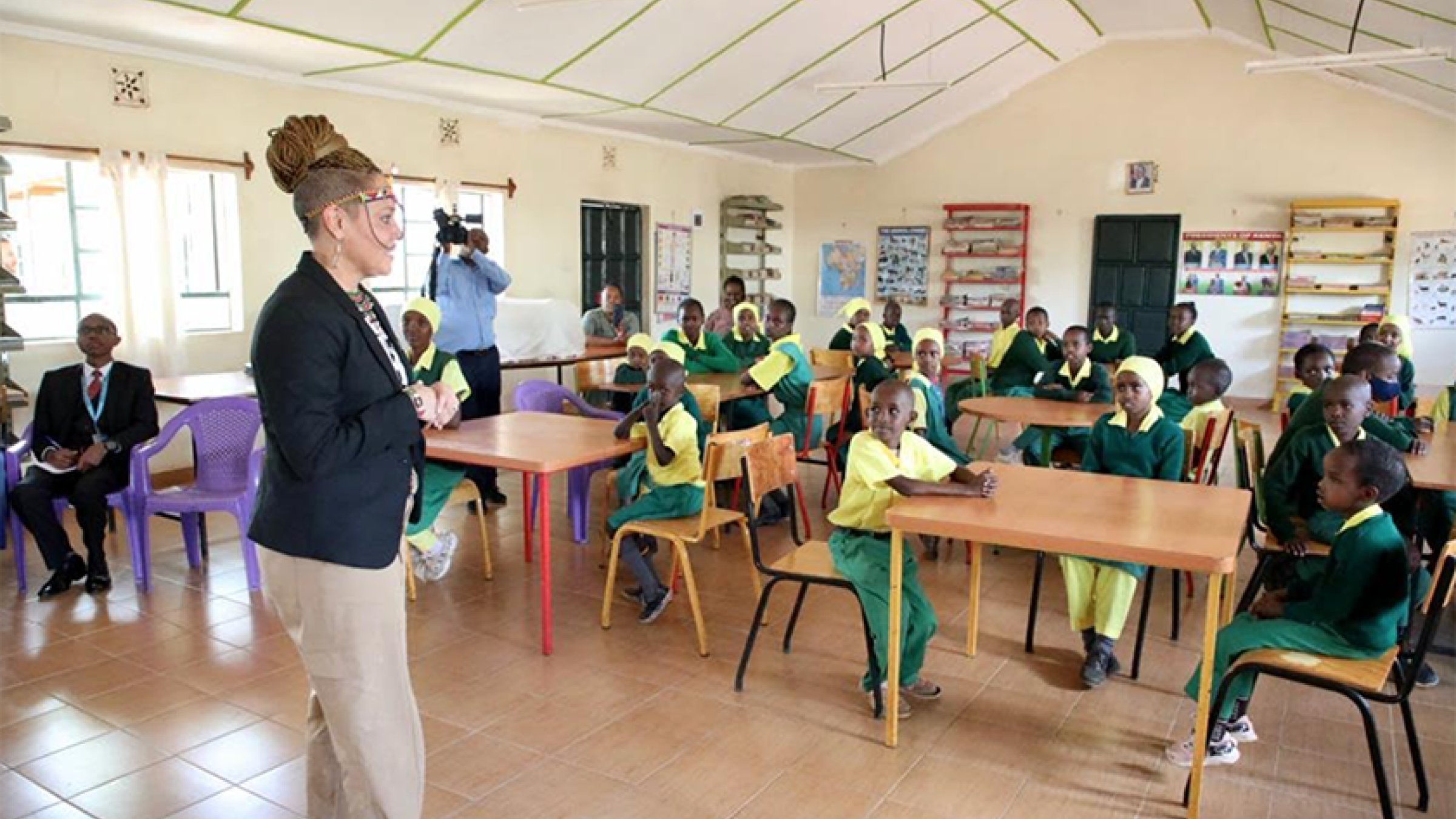
USDA Deputy Secretary Dr. Jewel Bronaugh led an ambitious and successful trade mission to Nairobi, Kenya, and Zanzibar, Tanzania, October 31-November 4. During the course of 5 days, Bronaugh and a delegation of leaders from USDA’s Foreign Agricultural Service (FAS), 25 U.S. agribusinesses and farm organizations, and 5 state departments of agriculture, traveled to 4 cities across 3 regions, conducted 127 business-to-business meetings between U.S. business representatives and foreign importers, met with 2 Presidents and several other dignitaries, and visited a flourishing USDA McGovern-Dole school feeding project.
The jam-packed trade mission succeeded in increasing awareness and boosting sales of high-quality U.S. food and agricultural products to Sub Saharan Africa and bolstering trade ties between the countries. Bronaugh and the delegation reiterated the need to embrace science-driven policies to help grow two-way trade, increase economic opportunities, and improve food security though agricultural biotech. U.S. companies initially project $4.15 million in expected 12-month sales from the mission.
“It was exciting to talk about some of the new and innovative technologies. One of the challenges that we heard while we were here was the significant drought that all of Africa is experiencing,” Bronaugh said. “It has impacted agricultural production and the quality of feed for animals – so we continued to talk about how agricultural biotech can address those issues, allowing opportunities for producing crops for food consumption and grain for feed that is drought resistant, pest resistant, and disease resistant.”
Examining how innovative technologies can increase economic opportunities in the food and agricultural sectors and improve agricultural resilience in East Africa was a priority during the trade mission. Visits to prospering McGovern-Dole sites highlighted the impact new technologies can have for women and other underrepresented communities.
“McGovern-Dole Programs are a powerful part of the work that we do at USDA and it was exciting to see the work first-hand,” FAS Administrator Daniel Whitley said. “We witnessed two program announcements during the trip; the graduation of the program in Kenya and the opening of one in Tanzania. Seeing the impact of us being able to provide commodities for these school feeding programs, and how that has benefited the families and the young people in those communities is remarkable.”
Trade missions are integral to FAS’s international marketing efforts, offering U.S. exporters a unique opportunity to build in-person relationships with potential buyers, learn first-hand about the market from industry and FAS trade experts, and ultimately generate sales for their businesses while helping feed the world.
USDA Trade Mission Strengthens U.S.-Africa Ties

